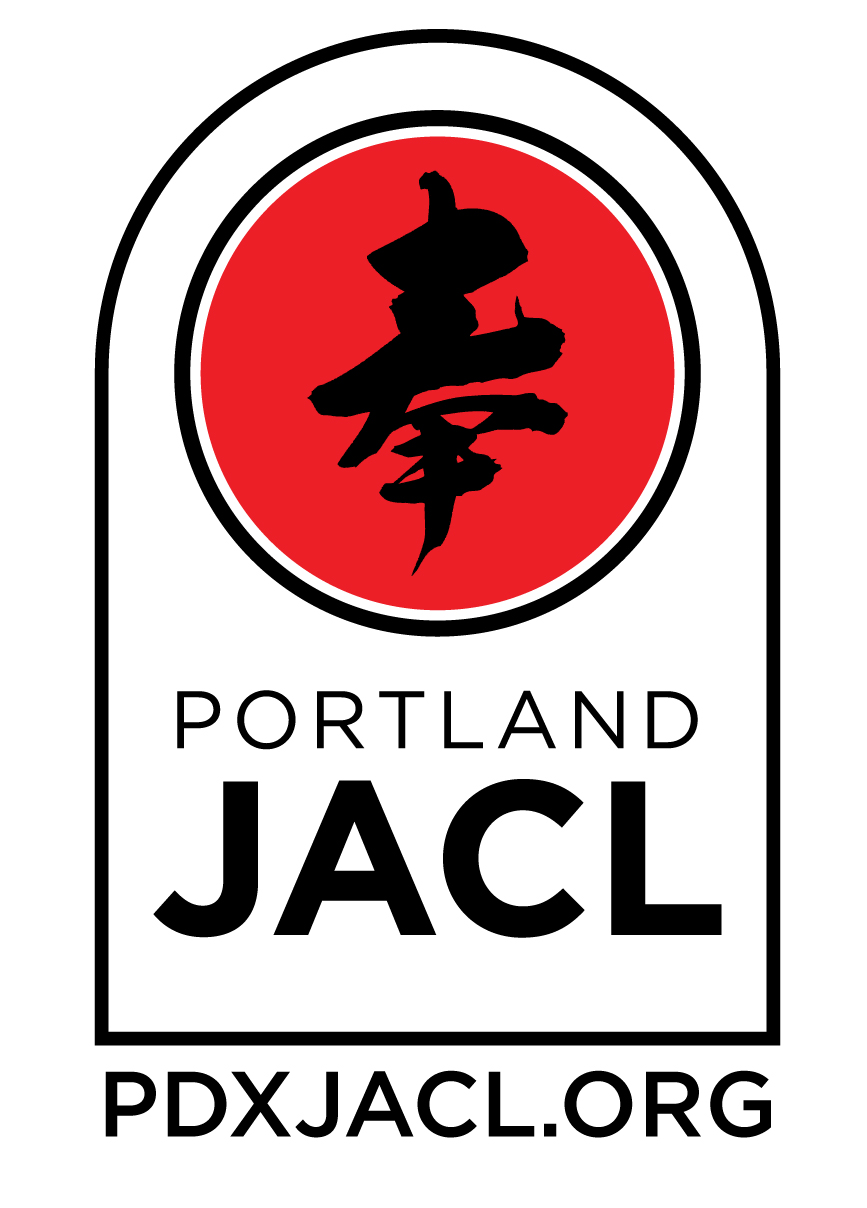he House of Representatives has now passed a voting rights and election reform package that includes key legislation from both the Freedom to Vote Act and the John Lewis Voting Rights Amendment Act. These fundamental reforms affirm statements made previously this week by President Biden and Vice President Harris during a visit to Georgia to discuss voting rights. Key parts of this legislation will protect and ensure fair and open elections, including the use of a wide range of forms of identification for in-person voting, making Election Day a federal holiday, guaranteeing the right to mail-in vote, and requiring reasonable public notice for changes to voting policies. It additionally includes illumination around dark money, makes it harder for billionaires and special interest groups to buy elections, and much more.
The JACL is thankful that President Biden and Vice President Harris are drawing attention to this issue, and we are happy to see congress capitalize on this moment and push forward with this legislation. Voting rights are essential to the preservation of our democracy from the local to the national level. We hope that the Senate will recognize the right to vote as fundamental to our democracy and that they will pass legislation to enable the representation of as many Americans as possible in the electoral process.
JACL Reflects on Pearl Harbor Day
December 7, 2021
For Immediate Release
Matthew Weisbly, Education & Communications Coordinator, mweisbly@jacl.org
Sarah Baker, VP Public Affairs, sbaker@jacl.org
Today the JACL reflects on the 80th anniversary of the devastating surprise attack on Pearl Harbor by Imperial Japanese forces. The attack resulted in the deaths of over 2,400 Americans stationed in Hawaii. This event is especially painful to the Japanese American community because the attack led to the direct questioning of loyalty and incarceration without trial of over 120,000 people of Japanese ancestry. Those that were not incarcerated continued to face hate and discrimination from their fellow Americans who saw them as indistinguishable from the faces of the enemy.
We recognize the 33,000 Japanese Americans who served in our nation?s armed services, despite the fact many had family members and they themselves were being imprisoned by their country. Even in their loyal service, they served within segregated units, yet they would become one of the most highly decorated combat units in the war.
It is without a doubt that the attack on American soil and loss of American lives was a dark day for our nation. However, the subsequent racial hysteria and demagoguery that led to the profiling and targeting of people of Japanese ancestry led us into an even darker place. It is only when we remember the wrongs of this past that we can be sure we do not repeat the same wrongs in the present day.
The trauma of this event persists within the Japanese American community, and it is important that we continue to fight against discriminatory practices that unjustly profile and surveil minority communities. Although we are unlikely to see actions on the scale of mass incarceration of nearly 120,000 people, in the past few years we have seen people from majority Muslim nations banned from our country and refugees denied entry disproportionately those with darker skin, all under the guise of national security need. And in the past year, COVID fear has led to the scapegoating and direct acts of hate and violence against Asian Americans. It is important we remember the history of racism as we continue to fight current racial injustices.

Join us in coming together as a community and spending time discussing and reflecting on ‘How to be an Antiracist’ by Ibram X. Kendi. Virtual Meetings on Tuesdays from 6:30-7:30 pm held the following dates:
- January 25th Chapters 1 ? 4: Definitions: DuelingConsciousness, Power & Biology
- February 22nd Chapters 5 ? 8: Ethnicity, Body,Culture & Behavior
- March 29th Chapters 9 ? 12: Color, White, Black& Class
- April 26th Chapters 13 ? 16: Space, Gender,Sexuality & Failure
- May 24th Chapters 17 & 18: Success, Survival & Wrap-Up
Learn more, register for the zoom link and request a free copy of the book at: https://tinyurl.com/PDXJACLBookClub
Questions? Email contact@pdxjacl.org
JACL and the National Endowment for the Humanities (NEH) are inviting seventy-two educators to explore the historical significance and enduring legacy of the World War II Japanese American incarceration experience and the reparations movement. While past participants are primarily social studies and humanities teachers at the K-12 levels, all are invited to apply.
This NEH Landmarks of American History and Culture workshop will be offered twice: June 19-24 and July 10-15, 2022. Participants will be staying in the historic Little Tokyo neighborhood in Los Angeles with the majority of programming being at our host institution, the Japanese American National Museum (JANM), with day trips to Santa Anita Park (a WWII temporary ?assembly center?) and Manzanar National Historic Site (one of the ten permanent WWII ?internment? camps). This will be one of the last times we are able to host a workshop with living camp survivors as the WWII generation passes the torch to future ones.
Learn more and apply here: https//jacl.org/2022-neh-landmarks
NEHgrant#NEHWhyHere#K12#highered
?A phenomenal sequence of lectures and field trips that offered new perspectives on civil liberties? – 2016 Landmarks Participant
Rest in Peace
JACL is saddened to learn that Holly Yasui has passed away due to complications from COVID-19. While Holly is best known for her father, Min Yasui, who challenged the incarceration of Japanese Americans during World War II all the way to the Supreme Court, she was also a fierce fighter for civil rights on her own. In the past few years, her passion was bringing to life the film Never Give Up! Minoru Yasui and the Fight for Justice and telling the story of her father?s crusade and how it applied to the modern struggles of the Muslim Ban and immigrant family incarceration and separation.
JACL Executive Director, David Inoue fondly recalls Holly, ?When I first met Holly at a rally in Washington, DC, she was especially enthusiastic about JACL?s leadership in fighting on behalf of other communities. This was not only her father?s legacy and his strong belief in JACL?s purpose, but she made fighting for justice her own mission. Her unexpected passing is a shock and tragic loss to us all.?
Board Members for the 2022-23 Term
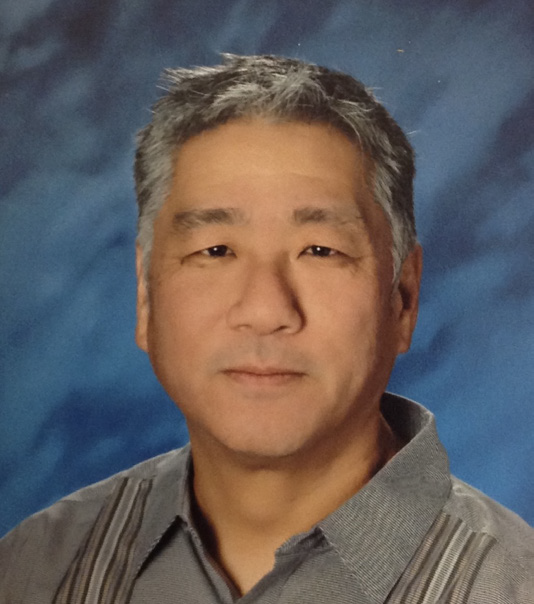
President – Jeff Matsumoto
Jeff Matsumoto is a Yonsei born and raised in Lodi, CA. He has worked as an elementary teacher since moving to Oregon in 2000. He looks forward to continuing the work started by the Portland JACL since joining the board a little over 2 years ago with a focus of greater membership engagement and strengthening our ties in the AAPI Community.

Vice President – Chris Lee
I?m a fifth-generation, multiracial Asian American. Currently I am serving as Co-President for Portland JACL and am seeking a 5th term on the board to continue ongoing work with the finance committee and Mochitsuki. My academic background includes a Bachelor?s degree in Asian Studies, a Master?s degree in International Management, and I have over ten years of experience in the energy industry.

Secretary – Heidi Tolentino
Heidi Tolentino has been on the Portland JACL board for 11 years and is the current secretary of the chapter. She works as a high school counselor at Cleveland High School in Portland and was a high school English teacher prior to becoming a counselor. Heidi has a 12-year-old daughter, Malia, who is part of the Portland Public School Japanese
Immersion Program and has been married to her husband, Patrick, for 23 years.
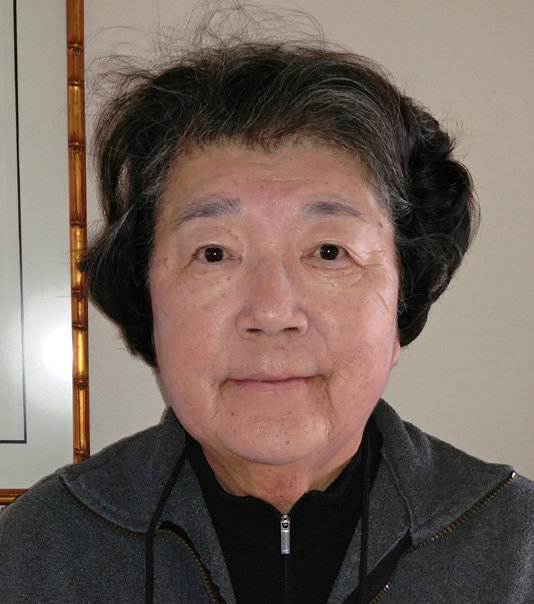
Membership Chair – Setsy Sadamoto Larouche
I would be honored to be your Membership Chair again as Portland has continued to be the largest Chapter in the Nation to include the one Chapter in Tokyo. I?m a product of Nisei Kibei parents from Hiroshima, Japan and we moved back to PDX when I was a child. My bachelor?s degree is in education and my master?s is in logistics. As a retired US Army Quartermaster Officer, I would like to continue my volunteer service to our community.

Treasurer – Jillian Toda-Currie
Jillian Toda-Currie is a fourth-generation Japanese American who grew up in The Dalles, near where her grandparents had a farm and cherry orchard. Jillian currently does marketing research in the healthcare industry. She has volunteered with various organizations in the Portland area including APANO, Minoru Yasui Student Contest, and Impact NW. She is the current Treasurer for the Portland JACL board.
Board Members at Large

Board Member – Sachi Kaneko
I am a fourth-generation, mixed-race Japanese American and Jewish American. I have been passionate about social justice since I was in high school and have found various ways to stay involved with our
community over the years. I have served for four years on the Portland JACL board. If reelected, I hope to keep serving our community as well as continue advocacy work for BLM, LGBTQIA+ communities, indigenous communities, and other minority groups.
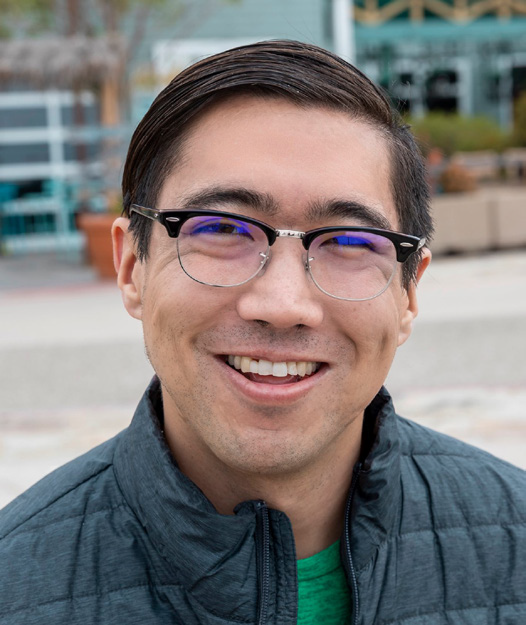
Board Member – Weston Koyama
Descended from Japanese immigrants, Weston Koyama is
a fourth-generation Japanese American. Weston maintains a passion
for Japanese culture, speaks Japanese fluently, and strives to foster connections with Japan. He seeks to help the JACL continue its tradition of social justice advocacy as a voice for the Japanese American community. Weston is an Oregon lawyer and a graduate of the U.O. Law School. His hobbies include languages, piano, and
currently studies Cantonese.
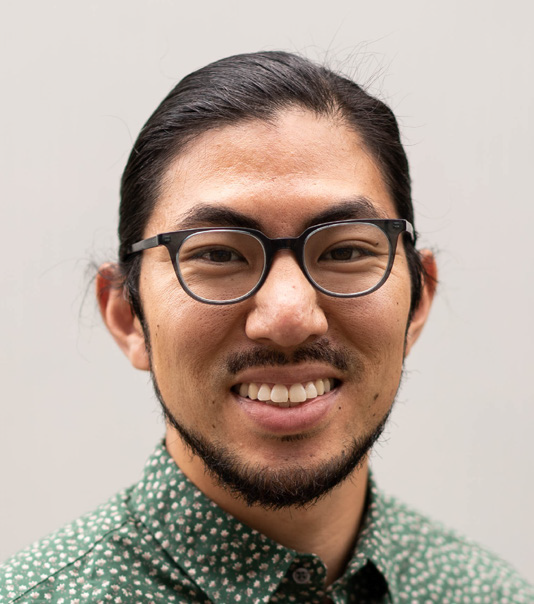
Board Member – Spencer Uemura
I am a Yonsei/Shin-Nisei from the Los Angeles area, but I?ve been in Portland for four years. By profession, I?m a mental health therapist,
drawn into this work by a passion for stories and connection. Lately, I have been enjoying documenting my family?s history and requesting and translating koseki (family registry documents) from Japan. I?ve been eager for an opportunity to give back to the Nikkei community, so I?m honored to be considered for the JACL board.

Board Member – Connie Masuoka
I am a Portland born sansei with over 40 years invested in the Portland JACL. You might say I was born in to JACL, as my parents were both active JACL members. My avocation is being the Oregon group leader to the annual Minidoka Pilgrimage and my regular job is being a general dentist in Portland.

Board Member – Amanda Shannahan
Amanda Shannahan is a mixed-race yonsei. She currently serves as Portland JACL copresident and leads our chapter?s Advocacy Committee. She is passionate about community organizing and working with other marginalized communities to achieve social justice. Amanda is a strong advocate for equity in our education systems and has a background in supporting schools to be
anti-racist and anti-oppressive. She currently works at the Oregon Health Authority promoting access to sex education across
the state.
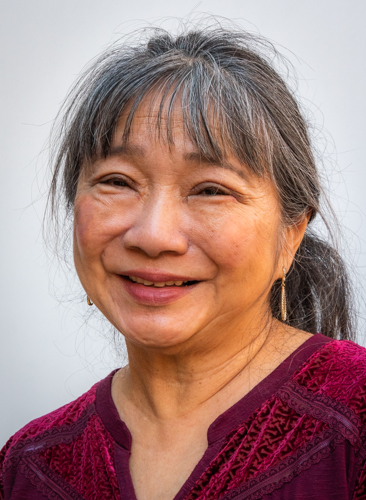
Board Member – Marleen Wallingford
I am a Sansei who was born and raised in Portland, Oregon. My first job was working as a clerk in my father?s bakery in Hillsdale. I graduated from the University of Oregon with a master?s degree in speech and language pathology and worked for almost 30 years
for Portland Public Schools. As a retired educator, I became active with the Portland JACL, volunteer at the Japanese American
Museum of Oregon and am a court appointed advocate for children in the foster care system.

Board Member – Jenny Yamada
As a fourth-generation Japanese American who grew up in Corvallis, I wasn?t able to be part of the JA community outside of family gatherings. Inspired to make more connections, I joined the Portland JACL Board in 2020. During my first term, I updated the website, helped implement the email newsletter and participated in the Newsletter and Advocacy Committees. Besides serving on the board, I volunteer at JAMO as a docent and work at a local marketing agency.
September 23, 2021
For Immediate Release
Matthew Weisbly, Education & Communications Coordinator, mweisbly@jacl.org
Sarah Baker, VP Public Affairs, sbaker@jacl.org
The JACL stands with Haitian refugees seeking asylum in America and is appalled by the blatantly inhumane immigration policies being conducted by the Biden administration. In the past week, we have witnessed images of the mistreatment of Haitian refugees and inhumane conditions in Del Rio. Many Haitian refugees are seeking asylum from the turmoil in their country after a massive earthquake and tropical storm struck Haiti in August 2021, and the assassination of their president in July 2021. This earthquake itself left over 2,200 Haitians dead and over 12,000 injured. Now, instead of a humane approach towards these refugees and their families suffering, we instead see CBP agents on horseback running after Haitian refugees.
This shocking imagery is unfortunately just a small part of a much larger and disturbing trend of mistreatment of immigrants by the Biden administration. Despite campaign promises that the new administration?s immigration policy would have humane guiding principles, Haitian immigrants and their families continue to be deported in massive plane flights at alarming rates. The Administration is sending planes full of families to Haiti under Section 42, including children under the age of three, without offering them legal protections and the opportunity to file for asylum. The JACL calls on the Biden administration to end these inhumane practices and to stop abusing the emergency powers granted by Section 42. Our communities have seen how hostility and violence towards immigrants and their descendants are often paired with the abuse of emergency powers granted to government officials in times of crisis, and we can not stand by while it happens again.
JACL Executive Director David Inoue stated, ?The frightful images of border patrol agents on horseback hunting down Haitian migrants are not what I would expect from our country. They are unfortunately indicative of how the administration continues to reject and expel those seeking escape from the political, earthquake, and tropical storm inflicted upheaval that the Haitian people have been experiencing. The government continues to use the inappropriate application of a so-called public health emergency under Section 42 to expel Haitians much like false security threats were used to incarcerate Japanese Americans during WWII. It is long past time to end these racist and exclusionary immigration policies.?
In 1973, the Supreme Court made the landmark decision that ruled access to abortion and one?s right to choose as protected under the 14th Amendment of the Constitution. Roe v. Wade has been one of the most contested and debated Supreme Court decisions in recent history. Since the court made its decision, it has come under attack by numerous state and local organizations. Unfortunately, his year has been no different. In the first half of 2021 alone, more than 90 laws restricting abortion access have passed in several state legislatures. Tuesday, Texas enacted the most restrictive abortion law to date; banning abortions after about six weeks of pregnancy. On Wednesday, a narrow majority of the Supreme Court ignored 48 years of precedent in allowing the Texas law to stand.
This six-week number is based on early cardiac activity, which also coincides most often when a doctor is able to confirm someone is pregnant. This means it is not nearly enough time for someone to not only confirm they are pregnant but to also schedule an appointment. The law also includes provisions to ?reward? bystanders for tipping off the local government to anyone who is attempting to aid in an ?illegal? abortion. This could include not only doctors but also family and friends of someone who is attempting to seek an appointment.
The JACL unequivocally supports the right to decide whether and when to become a parent. The National Council officially adopted a resolution, titled Family Choice, at the 1992 convention supporting a person?s right ?to choose and determine the course of their lives.?
JACL Executive Director, David Inoue stated ?This law serves as a dangerous precedent for not only the State of Texas but many others that are currently looking to enact similar laws. While the law should be unable to withstand court challenge, that the Supreme Court has declined to block its enactment is not encouraging. This signifies a clear shift of the court away from upholding what has been considered the settled law of the land and allowing the creation of new and dangerous policies infringing upon individual rights and encouraging reckless vigilantism.?
JACL Supports Afghan Refugees
The scenes that have come out of Afghanistan in the last few days are all too familiar to many within the Asian American community, with many people noting the eerie similarity to images from the Fall of Saigon in 1975. Then, just as now, the United States has a duty to help those scared and vulnerable civilians who are attempting to evacuate in order to protect themselves and their families. The time for debate about the war and its impacts will continue to happen, but now the priority must be to protect those who are at risk and give them refuge.
When the United States left Vietnam in 1975, over 130,000 civilians and refugees were evacuated as part of the withdrawal process, albeit by supposed ?rogue? civilian and military personnel. Currently, under a special visa program for Afghan citizens, less than 2,000, of 20,000 who applied, have been evacuated. Many more still have not had the chance to apply and are still searching for a way out. The top priority for evacuation should be given to those most at-risk members of Afghan society such as women and girls who are targeted by the Taliban, the LGBTQ community, the disabled community, interpreters, and others who supported the United States in Afghanistan.
The JACL has long supported the immigration of refugees seeking asylum in the United States. Four different administrations have been in power during the War in Afghanistan, and now it is on the current administration and Congress to ensure that our Afghan allies that have stood by us throughout the conflict are not abandoned. We call on the Biden administration and Congress to accept as many refugees as possible; through expanding the resettlement limit, increasing the number of Special Immigrant Visas and Priority 2 status refugees, as well as designate Afghanistan as Temporary Protected Status. It should also ensure that there are sufficient transportation sites for refugees seeking to leave the country.
The US should ensure that there is adequate assistance in areas such as housing, healthcare, and other basic necessities and that these immigrant communities are not targeted for deportation in the same fashion that many other post-war immigrant communities were treated. We are still seeing the struggle of Vietnamese, Hmong, and Cambodian refugees who came in the wake of the Vietnam War and who are now at risk of being deported and are incarcerated at higher rates than many other Asian American communities. We cannot allow any incoming refugees to suffer this same fate in the future.

Oregon Nisei Vets’ Stamp Dedication
Portland JACL joined other local organizations in the unveiling of this US Postal Service stamp. The program included former Oregon Governor Ted Kulongoski as Honorary Chair. Tributes included four generations of Japanese Americans and feature vignettes of Oregon Nisei military service portrayed by Oregon Asian Americans.
Watch the event recording here: vimeo.com/543729988
